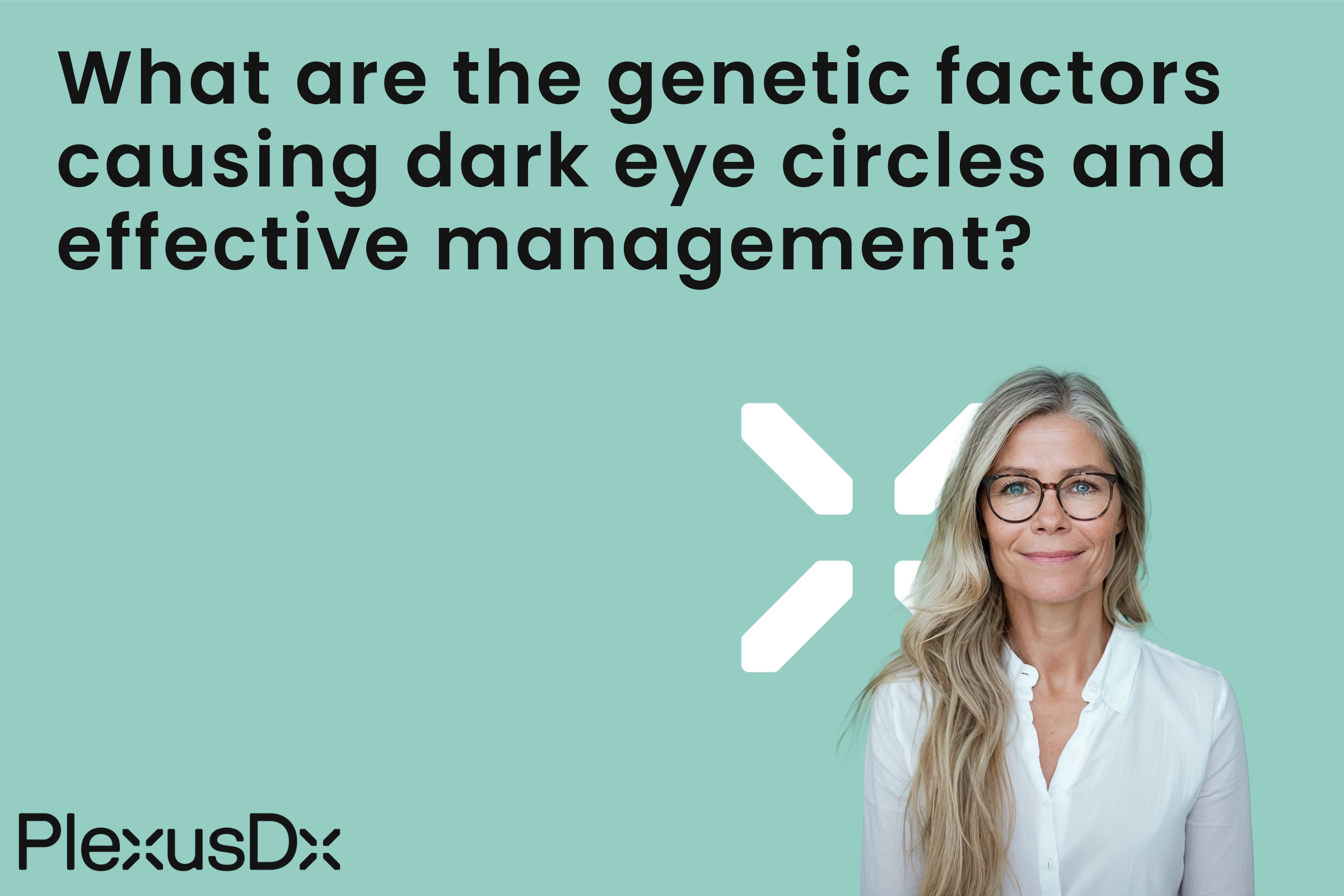Dark Eye Circles: You might notice dark circles beneath your eyes when you look into the mirror but wonder why they persist no matter how much sleep you get.
Many adults experience periorbital dark circles which remain a widespread cosmetic concern. Although dark circles might appear to be trivial they could signal deeper health issues. This blog post examines the root causes of dark eye circles while discussing genetic influences and offering management strategies for this common condition.
Dark eye circles present as distinct skin discoloration under the eyes which frequently takes on bluish or brownish tones.
The delicate nature of the skin surrounding the eyes allows blood vessels to show through more clearly which results in a darker appearance. Dark circles become more pronounced because of fatigue as well as aging and dehydration issues which together with genetic factors intensify their appearance.
Dark eye circles may develop because of genetic factors which make certain people more susceptible to this condition when it runs in their family.
The current scientific research provides limited evidence for a direct genetic connection to dark eye circles. Researchers need to conduct additional studies to uncover all genetic factors responsible for this particular cosmetic issue.
Dark eye circles represent more than cosmetic issues because they can indicate possible health problems.
A variety of medical conditions including allergies and eczema alongside anemia and vasodilating medications can lead to the darkening of the under-eye region. The production of melanin that leads to darker circles under the eyes increases as a result of sun exposure which serves as an environmental factor.
Treating dark eye circles typically requires an approach that combines multiple strategies.
People can choose from simple home remedies like cold compresses to decrease swelling and narrow blood vessels to advanced medical options including topical Vitamin C or K creams and retinoids or procedures like chemical peels and laser therapy and fillers to treat dark under-eye circles.
These practical tips will help you effectively address the problem of dark eye circles:
- Stay Hydrated: Dark circles become more noticeable when you don't drink enough water every day.
- Get Sufficient Sleep: Dark eye circles formation is linked to insufficient sleep thus aim for a nightly rest period between 7-9 hours.
- Protect Your Skin: Wearing sunglasses alongside sunscreen application helps protect your sensitive under-eye skin from damaging UV rays.
- Consider Topical Treatments: Discover eye creams with Vitamin C, retinol, or hyaluronic acid to enhance skin texture and tone.
- Consult a Professional: Consult a dermatologist or skincare specialist for personalized treatment advice when home remedies fail to produce results.
Dark eye circles represent a widespread cosmetic problem that develops from multiple factors such as genetic makeup, lifestyle choices, and health conditions. Additional research is required to confirm whether genetic predispositions truly cause dark circles. You can successfully diminish dark eye circles through a complete skincare routine that embraces healthy practices and professional advice when necessary. PlexusDx's Precision Health & Wellness tests help you take control of your skin health by providing essential information about your genetic predispositions and general well-being. Start your custom health journey now by visiting PlexusDx.com or purchasing through Amazon or Walmart. You need to focus on self-care because your skin shows how you feel inside and this leads to a glowing refreshed appearance.

Share:
What health risks are associated with NAT2 slow acetylator status?
Effects of PCSK9 gene variants on cholesterol metabolism and heart disease risk?